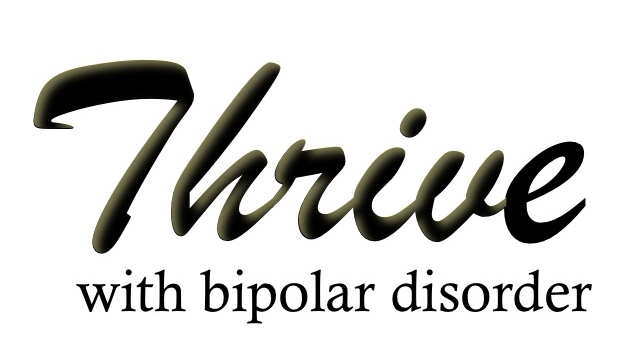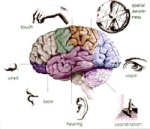 Have you ever had a friend who was in a relationship with a boyfriend or girlfriend that did their best to try to control them or change them or tell them, “You will never be…….I am the best you will ever have”?
Have you ever had a friend who was in a relationship with a boyfriend or girlfriend that did their best to try to control them or change them or tell them, “You will never be…….I am the best you will ever have”?
Have you ever had a friend who was in a relationship with someone who did not want them to be around their family and friends or do any of their interests and wanted to keep them all to themselves?
Have you ever friend who was in a relationship with someone who did not want them to be happy, period, EVER?
If you were in this relationship, would you want to break-up as soon as possible?
This description is the relationship people have with Depression.
Depression is the unhealthy relationship who wants to control you. Depression wants to change you in ways that will serve it’s purpose. Depression tells you, “You will never be……I am all there is.” Depression wants to isolate you from all of your friends and family. Depression wants to steal any pleasure and interest you have in your life.
Why is it so hard to break-up with Depression?
Just like in an unhealthy relationship, Depression convinces you that the problem is “YOU”. Depression convinces “There’s something wrong with you.” “You are bad.” “You are worthless.” “You don’t deserve to be happy.” “No one cares.” “You can’t be…” “You will never feel happiness again.”
By believing this it causes you to own it. It is like marrying Depression. When you believe the fear that Depression feeds you, you are making a commitment to it.
How to break-up with Depression
[Note: these ideas will not be effective with all forms of depression. Severe depression requires medical help and the monitoring of psychiatric and psychotherapeutic professionals.]
Breaking-up with Depression is a lot like ending an unhealthy relationship. HARD!
-
Recognize and Identify Depression in Your Life.
Just like in the first step of ending an unhealthy relationship, you have to recognize that you are in a relationship with Depression, that the relationship is unhealthy and that it is not what you want for yourself and who you choose to be.
In order to identify Depression in your life, you have to be able to recognize what is YOU and what is NOT YOU. For instance, is it YOU who doesn’t care about anything and chooses to stay in bed all day or is it Depression? Is it you that finds no pleasure in things that are normally pleasurable or is it Depression?
This is the hardest part of the break-up with Depression and an unhealthy relationship.
People struggle the most with this because Depression has them convinced that they are the problem and has them believe that they are Depression.
Once you are able to see that Depression is not who you are, it is separate from you, you can learn how it works.
-
Understand What Depression Needs to Thrive.
Depression may be a chemical imbalance in our brains, yet it behaves just like every other living organism.
Depression needs energy to survive. And just like every other living organism on this planet, it needs to receive energy from someone or something else that is living.
Depression gets it’s energy by consuming energy from the people it inhabits. Depression has a lot in common with a parasite, virus or bacteria that need a living host in order to survive.
As human beings, we generate and use the most energy by being active. We do the most activity doing things that bring us pleasure, interest or reward. Because we are human, we also receive energy by being connected to other people.
Therefore, it makes sense that Depression would consume our energy by inhibiting people from experiencing pleasure and interest…and by keeping people isolated.
-
Interrupt and Shut Down Depression’s Control.
Like an unhealthy relationship, Depression needs to be in control. An unhealthy relationship needs to control your self-esteem and self-worth, so does Depression. An unhealthy relationship controls what you do and keeps you isolated, so does depression.
Take a stand! Depression does not want you to be active, find a way to be active anyway! Even if it is as simple as taking a shower and getting dressed. It does not matter how big or little you do. Simply do something.
Depression wants you to be alone. Connect with people or pets! I know this is hard to do. Being around people when you are experiencing depression can make you feel worse, especially if they are trying to make you feel better. However, if you don’t want to talk, don’t talk. Ask a loved one to just sit beside you and hold your hand. You don’t need words to connect and you don’t need to feel better. You simply need to connect.
Don’t expect to feel pleasure during this stage of the break up with depression. All of the actions you do during this time are a part of the break up process.
-
Consistently Be Active and Stay Connected
Now that you know what Depression needs and how it is getting it, stop giving it to Depression as best you can.
This is difficult to do because depression has consumed your energy and made you feeling tired, sore and/or achy. Nonetheless, your body still works, it can do more than Depression wants you to believe it can. It is very difficult to not let your body stop you and Depression knows this and uses this knowledge against you.
I know it is hard. Nevertheless, breaking up with depression means that you have to go against what your own body wants. This is very similar to when you are in love and you have to force your heart to let go.
By no means is breaking up with Depression easy. It is hard, yet it sounds simple “do something and connect”. Breaking up with Depression and moving on is worth your effort.










